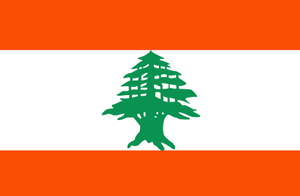Aktuelle Reisewarnungen für Libanon
Hinweis: der Gesamtscore für dieses Land gibt aktuell einen falschen Wert aus. Bitte prüft die Quellen.
Note: the total score for this country shows a wrong value. Please check the sources.
Letzte Aktualisierung: Dienstag, 13. August 2024 um 08:21
 Reisen nach Libanon sollten nur wenn nötig unternommen werden.
Reisen nach Libanon sollten nur wenn nötig unternommen werden.
Anzeige
Aktuelle Einschätzung: 4.2 / 5
Libanon ist ein Land in Asien (West-Asien) mit etwa 4 Millionen Einwohnern und einer Landfläche von 10.400 km². Es liegen aus 9 verschiedenen Quellen Hinweise zu diesem Land vor.
Angrenzende Nachbarländer: 4,6 / 5
Libanon grenzt an Syrien und Israel. Für diese Länder beträgt der Reisewarnindex 5,0 (Syrien) und 4,2 (Israel). Siehe hierzu auch die Gefahrenkarte.
Aktuelle Informationen zu Covid-19
Das European Centre for Disease Prevention and Control meldet keine Fälle von COVID-19 (infection with SARS-CoV-2 or Coronavirus).
Quelle: www.ecdc.europa.eu
Aktuelle Einzelmeldungen / Reisehinweise
Reisewarnstufe: 5
Do not travel / Extreme Risk.
Reisewarnstufe: 3
Avoid non-essential travel to certain areas.
Reisewarnstufe: 5
Do not travel.
Reisewarnstufe: 5
.
Reisewarnstufe: 5
Travel Warning.
Reisewarnstufe: 5
Avoid all travel.
Reisewarnstufe: 5
Avoid Travelling..
Wenn von einer Behörde eines Landes mehrere Meldungen gelistet werden, bedeutet dies, dass in diesem Land regionale Unterschiede in der Sicherheitslage bestehen. Einzelne Meldungen können Gebiete ausweisen die sicherer oder unsicherer als die Hauptmeldung sind. Hier empfiehlt es sich die Mitteilung der jeweiligen Behörde zu lesen. Zusätzlicher Hinweis: Da die Einstufung ein automatisierter Prozess ist, kann dieser nur als erster Schritt für eine eigene Recherche gelten. Schau' dir bitte auch die einzelnen Quellen an.
Werbung
Allgemeine Länderinformationen
Länderflagge

Basisfakten
- Einwohner
- etwa 4 Millionen
- Fläche (Land, Inseln)
- 10.400 km²
- Elektrizität
- 230V - 50Hz
- Währung
- Pound (LBP)
- ISO 2-Buchstaben Code
- LB
- Vorwahl
- +961
- Top Level Domain
- .lb
- Mobile Frequenzen (MHz)
- 900
Flughäfen in Libanon (extern)
Video
Häufig gestellte Fragen
Hier ein paar kompakte Antworten auf häufig gestellte Fragen zur Reisesicherheit in Libanon.
Liegen für Libanon Reisewarnungen oder -Hinweise vor?
Aktuell liegen für Libanon Hinweise aus 9 Ländern vor. Die aktuelle Durschnittsbewertung liegt bei 4.2 von 5 Punkten.
Ist Libanon in 2020 zum Reisen sicher?
Für Libanon liegen mehrere Reisehinweise vor. Da der Warmwert über 4.2 von 5 möglichen Punkten liegt, möchten wir Ihnen empfehlen sich vor Reisenantritt bei Ihren Behörden über den genauen Zielort zu informieren.
Von wievielen Ländern liegen Reisehinweise für Libanon vor?
Uns liegen aus 9 Ländern Reisehinweise für das Land Libanon vor.
 Neuseeländische Regierung
Neuseeländische Regierung Zypriotische Regierung
Zypriotische Regierung Australische Regierung
Australische Regierung US Amerikanische Regierung
US Amerikanische Regierung Deutsche Regierung
Deutsche Regierung Kanadische Regierung
Kanadische Regierung Finnische Regierung
Finnische Regierung